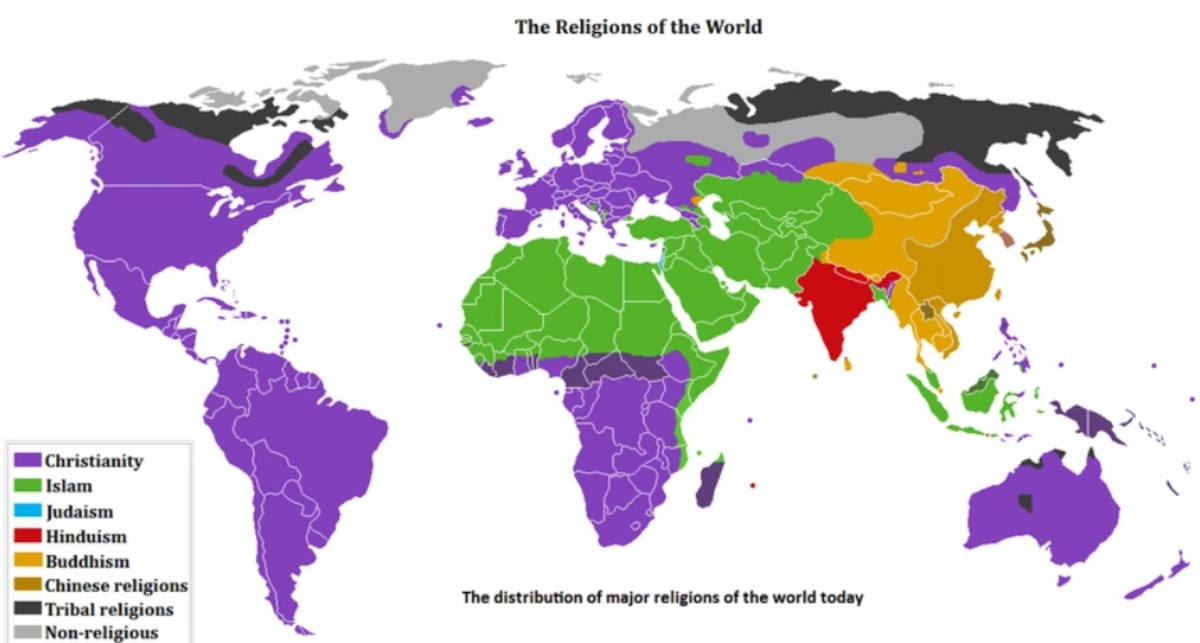The Dalai Lama: "Too much emphasis...on differences
The Dalai Lama: “Too much emphasis…on differences”
On October 10, the Dalai Lama, who is considered one of the world’s most influential spiritual leaders and who was winner of the 1989 Nobel Peace Prize, gave a lecture on the virtues of human compassion at William and Mary to over 8,000 students and public attendees. Among the many interesting things he is reported in an article by Rusty Carter and published in the Daily Press to have said is “There’s too much emphasis on the secondary level of differences in religion, differences in race, in color, in nationality... If I say Buddhism is better, my attitude creates a barrier… We’re the same. We’re born the same. We die the same. Our reproduction is the same.” That statement grabbed my interest and held on. The relevant question is: Is the Dalai Lama right?
The truth is we are different in religion, in race, in color, and in nationality, but when I look at the qualifiers in the Dalai Lama’s statement, I indeed get a better understanding about what he meant. He used the term “secondary level,” which suggests that he was not speaking about differences at the primary level. He also used the term “too much emphasis,” which suggests that he was talking about overemphasis on differences in religion, in race, in color, and in nationality. Driving the nail home, he gave an example. To see our differences as being better than others create an attitude that drives a wedge between us.
As Christians, as Americans, and as individuals, we perhaps need to sit at the Dalai Lama’s feet and drink from his cup of wisdom. Too many of us see our differences as making our religion, our race, our color, and our nation superior to that of others. At the root of the tension between Christians and Muslims, I think, is the attitude that one is better than the other. Muslims seem to think they are better than Christians, and Christians and Jews seem to think they are better than Muslims. But all three groups need to realize that they have the same roots and the same end. A serious study of religions of the world reveals that Judaism grew out of other religions, Christianity grew out of Judaism, and Islam grew out of both Judaism and Christianity. All three groups express belief in the same God, although he is called “God” in English and “Allah” in Arabic, according to George W. Braswell Jr. in his book Understanding World Religions. All share the same scriptures. “Much information from the Bible is included in the Qur’an (Koran),” wrote Braswell. “Some twenty-eight prophets of the Bible are mentioned, and Muhammad, Abraham, and especially Jesus are singled out for special commemoration.” Abraham is the friend of Allah and the very first Muslim. Jesus is born of a virgin and he is a miracle worker and great teacher.” Christians and Muslims believe that beyond death is the resurrection.
Too many of us see our race and skin-color as being better than that of others. After the civil rights struggle in the 1960s and 70s, many today tend to think that race no longer matters in America. However, if one is attune to what Chris Matthews on Hardball calls the “dog whistle,” one will know for certain that race is still an issue in this country. The election of the first black president of the United States has brought out the worst in us as Americans.
Like the Jews of old, we as Americans tend to think we are God’s “chosen people” at the expense of people of other nations being God’s enemies. That indeed is the kind of difference that keeps us apart. The Dalia Lama is right. There is too much emphasis on our differences at what he calls the “secondary level,” and I add, too less emphasis on our commonality.
Pamay Bassey in Huff Post Sunday Magazine, writing about Shaima Alawadi, a 32 year-old Iraqi mother of five living in California, who was “beaten within an inch of her life and left to die in her living room,” said, “I believe that there is a fiercely urgent need for us to take time to learn about people who look differently than we do, live differently than we might, worship differently than what is familiar to us.”
Learning about people who are different than we are will indeed lessen fear and violence in our beloved country and bring us closer together as one people “with liberty and justice for all.” Without a doubt, what Martin Luther King Jr. (in his last book, Where Do We Go from Here: Chaos or Community?) called “the fierce urgency of now” is indeed upon us.





